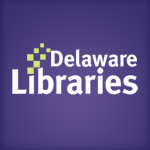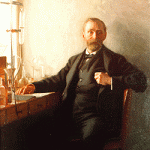
Facebook Twitter Pinterest Flickr Google+ YouTube Instagram
Written on: October 20th, 2009 by: in Learning Journeys
 Nobel Prize season is upon us, with ongoing announcements for the winners in various categories, and the awards ceremony itself just around the corner. I came upon (via twitter) this page on the Nobel Prize website that discusses the reading habits of various winners. It’s a fascinating insight into the early learning styles of some of the most accomplished geniuses of the modern age, and there were two points that particularly captured my attention:
Nobel Prize season is upon us, with ongoing announcements for the winners in various categories, and the awards ceremony itself just around the corner. I came upon (via twitter) this page on the Nobel Prize website that discusses the reading habits of various winners. It’s a fascinating insight into the early learning styles of some of the most accomplished geniuses of the modern age, and there were two points that particularly captured my attention:
First that many of the winners in widely different fields had an early, indiscriminate, and devoted love of reading in general, reading widely and voraciously, exploring and exhausting authors, subjects, and genres before finding the topic that began to unleash their inner genius. And second, that this need to explore, generalize, and finally specialize was supported in its earliest days by public libraries:
Martin Perl (Physics, 1995) writes of his upbringing in Brooklyn:
Along with my parents insistence, soon internalized, that I do very well in school, went my love of reading and my love of mechanics. I read everything: fiction, history, science, mathematics, biography, travel. There were two free public libraries within walking distance of my home; I remember taking six books home from every visit, the limit set by the library.
Among the books that Perl checked out “again and again” were Lancelot Hogben’s popular introductions to mathematics and science, as well as magazines like Popular Science and Popular Mechanics . With these starting blocks, Perl went on to discover new subatomic particles and to redefine our understanding of the fundamental building blocks of matter.
William Phillips (Physics, 1997) also remembers childhood visits to his public library in Huntingdon, Pa:
I clearly remember the value my parents placed on reading and education. My parents read to us and encouraged us to read. As soon as I could read for myself, walking across town to the library became a regular activity.
Rosalyn Yalow (Physiology/Medicine, 1977) notes Eve Curie’s biography of her mother Marie Curie as a significant late influence, but also emphasizes the important role of public libraries in her early intellectual development:
I was an early reader, reading even before kindergarten, and since we did not have books in my home, my older brother, Alexander, was responsible for our trip every week to the Public Library to exchange books already read for new ones to be read.
Yalow’s groundbreaking work on peptide hormones gave birth to a new era in endocrinology and led to significant advances in the treatment of diabetes.
Carl Wieman, another laureate in Physics, was raised in a remote part of Oregon, and speaks appreciatively of the role of public libraries in his early intellectual development:
A stop at the public library was always part of these trips. Although I was unaware of it at the time, my parents must have made special arrangements for their children to use the library since we lived far outside the region it was supposed to serve. The librarians would also overlook the normal five-book limit and allow me to check out a large pile of books each week that I would then eagerly devour.
Finally, Richard Axel (Medicine, 2004) writes movingly of his discovery of reading and intellectual inquiry after moving to New York as a refugee from the Nazi Holocaust. After beginning work at age 11 he grudgingly began to attend Stuyvesant High School in Manhattan, where a new world of art and culture revealed itself to him through that city’s great public institutions- including the New York Public Library:
I would read in a most beautifully appointed place, the Reading Room of the Central New York Public Library on 42nd Street. One passes the pair of sculpted lions, ascends a flight of stairs into a huge high-ceilinged room of impressive silence where I read incessantly without direction but with a newfound fascination that made up for years of illiteracy.
On behalf of public libraries everywhere, I’d like to say to all of these outstanding geniuses- “you’re welcome!” I hope that our public libraries will continue to nurture generation after generation of Nobel laureates.